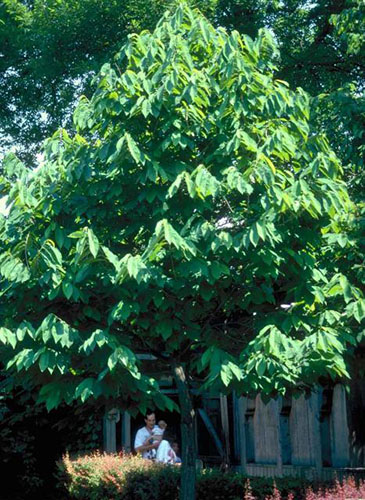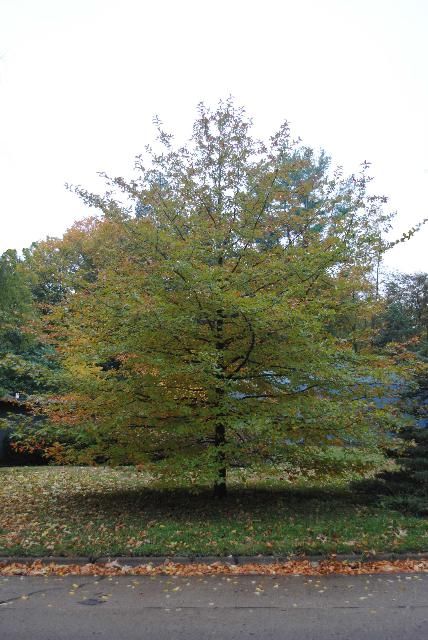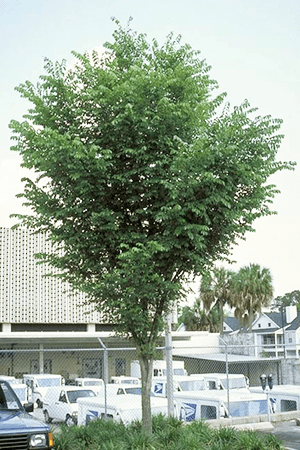
PawPaw, Asimina triloba, is a small deciduous tree that typically matures to a height of 15 to 20 feet with a colorful display of yellow leaves that fall in the autumn. PawPaw’s unique drooping appearance blooms in springtime, with vibrant red, purple or pink-hued 2-inch-wide flowers. This plant is easy to please, flourishing in all light conditions, moderately drought tolerant, and can survive flooding—perfect for our North Florida summers! Its ideal soil is rich, moist, and slightly acidic.
 PawPaw photo courtesy of UF/IFAS
PawPaw photo courtesy of UF/IFAS
Blackgum, Nyssa sylvatica, is a medium-sized tree that can reach up to 80 feet tall and typically grows in the understory rather than as a dominant tree. Blackgum, also known as sourgum, grows in a variety of sites with moist, rich slightly acidic soils. The crown shape can vary from tree to tree but becomes more uniform as it ages. It is often one of the first trees to bud in the spring and among the first to have its leaves turn a beautiful display of red to deep purple in the fall.
 Blackgum photo courtesy of UF/IFAS
Blackgum photo courtesy of UF/IFAS
American Elm, Ulmus americana, is a long-living deciduous shade tree that can reach up to 80 feet tall. This tall, straight-trunked tree features an elegant vase-shaped crown with a symmetrical canopy that can spread 50 to 60 feet wide. Tolerant of droughts, these trees prefer full sun and have extensive but shallow root systems. Its elegant dark green leaves turn a golden yellow in the autumn.
 American Elm photo courtesy of UF/IFAS
American Elm photo courtesy of UF/IFAS